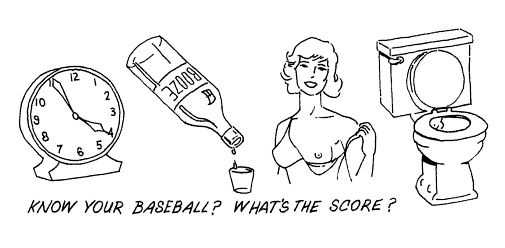KillerNut
Banned
I have been given a team of Little League baseball players to coach. I have no children of my own yet so these will all be someone elses kids.
I have some quetions however for parents on this board and I just want opinions.
Number one, I have ABSOLUTELY no intention of being one of those little league baseball coaches that yells, gets in fights, beats up people, or gets beat up. I fully understand that when you are dealing with 9-10 year olds it is suppose to be fun, a learning experience, and not too serious, but here are some dilemas.
1) In my view, and I would assume in most of my kids view loosing is not fun. Since we want to have fun, I would like to atleast win our share of games. How much would you focus on winning. What I guess I mean is would you do anything within the rules to try and give your team the best chance of winning. (For example bench your worst players as much as possible)
2) Is it appropriate to tell kids to try and get a walk if they can't hit because it allows them to run the base paths, and maybe feel like they helped the team win more, than if they kept striking out?
3) Would you allow kids to pick positions that they want to play more than where I need them to play?
These are just some of the questions. I really want this to be fun, and I want every kid to be successful, however I am too much of a realist to think that each kid being a big success is possible.
I think I am pretty good at teaching baseball, but this is the first time I have been the head coach, which worries me a bit more.
Any suggestion, experiences, thoughts, would be appreciated.
I have some quetions however for parents on this board and I just want opinions.
Number one, I have ABSOLUTELY no intention of being one of those little league baseball coaches that yells, gets in fights, beats up people, or gets beat up. I fully understand that when you are dealing with 9-10 year olds it is suppose to be fun, a learning experience, and not too serious, but here are some dilemas.
1) In my view, and I would assume in most of my kids view loosing is not fun. Since we want to have fun, I would like to atleast win our share of games. How much would you focus on winning. What I guess I mean is would you do anything within the rules to try and give your team the best chance of winning. (For example bench your worst players as much as possible)
2) Is it appropriate to tell kids to try and get a walk if they can't hit because it allows them to run the base paths, and maybe feel like they helped the team win more, than if they kept striking out?
3) Would you allow kids to pick positions that they want to play more than where I need them to play?
These are just some of the questions. I really want this to be fun, and I want every kid to be successful, however I am too much of a realist to think that each kid being a big success is possible.
I think I am pretty good at teaching baseball, but this is the first time I have been the head coach, which worries me a bit more.
Any suggestion, experiences, thoughts, would be appreciated.




